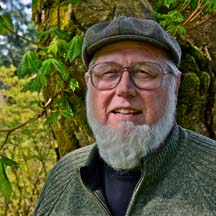No products in the cart.
What They Said

Following the Rules
By Gary Oberbillig
I have never experienced a greater sense of redemption than on a day when I was six years old, lost in fantasy, creeping along a shady trail near McCall. I carried a BB gun that I had been warned to never touch without supervision, an early instance of advice from elders that I usually obeyed if not always. Sometimes it wasn’t so much advice as simply the imparting of wisdom, and over the years, such moments have had a way of sticking with me.
Such was the case on this day, when I saw myself as an intrepid Indian scout reconnoitering for enemies, or maybe looking for a deer to feed my hungry tribe, and there he was! I cocked the rifle, drew a bead, and fired.
A furry little chipmunk lay inert on the stump where only seconds earlier he had stood bolt upright, chattering a greeting to the morning. Instantly, I was overcome with remorse and ran back to our tent camp, my eyes swimming.
Grandfather Simpson comforted me, as a good grandfather will, and walked me back along the trail. I carried a small box to give the chipmunk a decent burial, because Grandfather must have figured such a ceremony might bring some relief from my guilt. When we reached the stump in the dark woods, the little body lay stretched out, just as I have seen him ever since in memory.
This content is available for purchase. Please select from available options.
Register & Purchase Purchase Only
Register & Purchase Purchase Only

